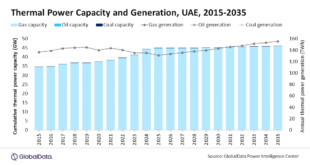UK manufacturing has had another difficult month in the face of Brexit uncertainty, posting a four-month low for February of 52.0 (The Final Eurozone Manufacturing PMI).
It’s the lowest figure since the July 2016 reading, post-Referendum. This figure is hanging on to remain in growth territory – just – as manufacturers do all they can to prepare for and mitigate the risks of Brexit.
The Eurozone has also been hit by Brexit uncertainty, with some disappointing news this morning.
The Final Eurozone Manufacturing PMI has dropped below the 50 growth figure, at 49.3.
Output improves
Output improved overall for UK manufacturers in February, as firms worked hard to reduce backlogs and stockpile finished products to prepare for the UK’s exit from the EU.
Optimism and employment drop
Business optimism suffered from Brexit uncertainty, as did employment in the sector, which had been buoyant for some time. Job losses in the sector have reached a six-year high.
While some companies surveyed expressed optimism that any certainty about Brexit could improve forecasts in a year’s time, the overall picture is cause for concern.
New orders down
New order growth has slowed almost to a standstill, as domestic markets delay orders amid the uncertainty and exports fall from fears of a global economic slowdown.
Cost pressures ease
On the positive side, cost pressures continue to calm, and manufacturers have been able to factor these costs in by passing them on to customers, thereby increasing selling pricing.
Ricky Nelson, head of corporate dealing at currency specialist, Halo Financial, cautions: “Companies in the manufacturing sector are proactively preparing for what may or may not happen post-Brexit, but the ongoing uncertainty has chipped away at new business and confidence in the sector.

“Even exports, which have, until recently, been benefitting form a weaker Pound, are falling, and economic fears beyond Brexit are sending ripples across industry worldwide.
“The US-China trade tensions have had a marked effect on global imports and exports and concerns over a global economic slowdown are sending markets into panic mode.”
Atul Kariya, manufacturing sector lead and partner at accountants and business advisors, MHA MacIntyre Hudson, comments: “It is clear that UK manufacturers have taken preparatory measures to heart and put into place plans to ease the impact of Brexit risks. But continued global economic uncertainty is hitting the industry from all sides, dragging down optimism and putting on hold future plans.

“The sector is not alone and the current climate is creating a difficult backdrop for longer term decision making and investment decisions.
Dorrien Peters, head of manufacturing at Irwin Mitchell, observed: “Faced with the level of uncertainty that we have seen over the last month, these results are not surprising. March looks set to see this continue and although there are moves to delay Article 50 and also avoid a no-deal, an orderly Brexit is far from guaranteed and manufacturers must continue to prepare.”

 Engineer News Network The ultimate online news and information resource for today’s engineer
Engineer News Network The ultimate online news and information resource for today’s engineer



